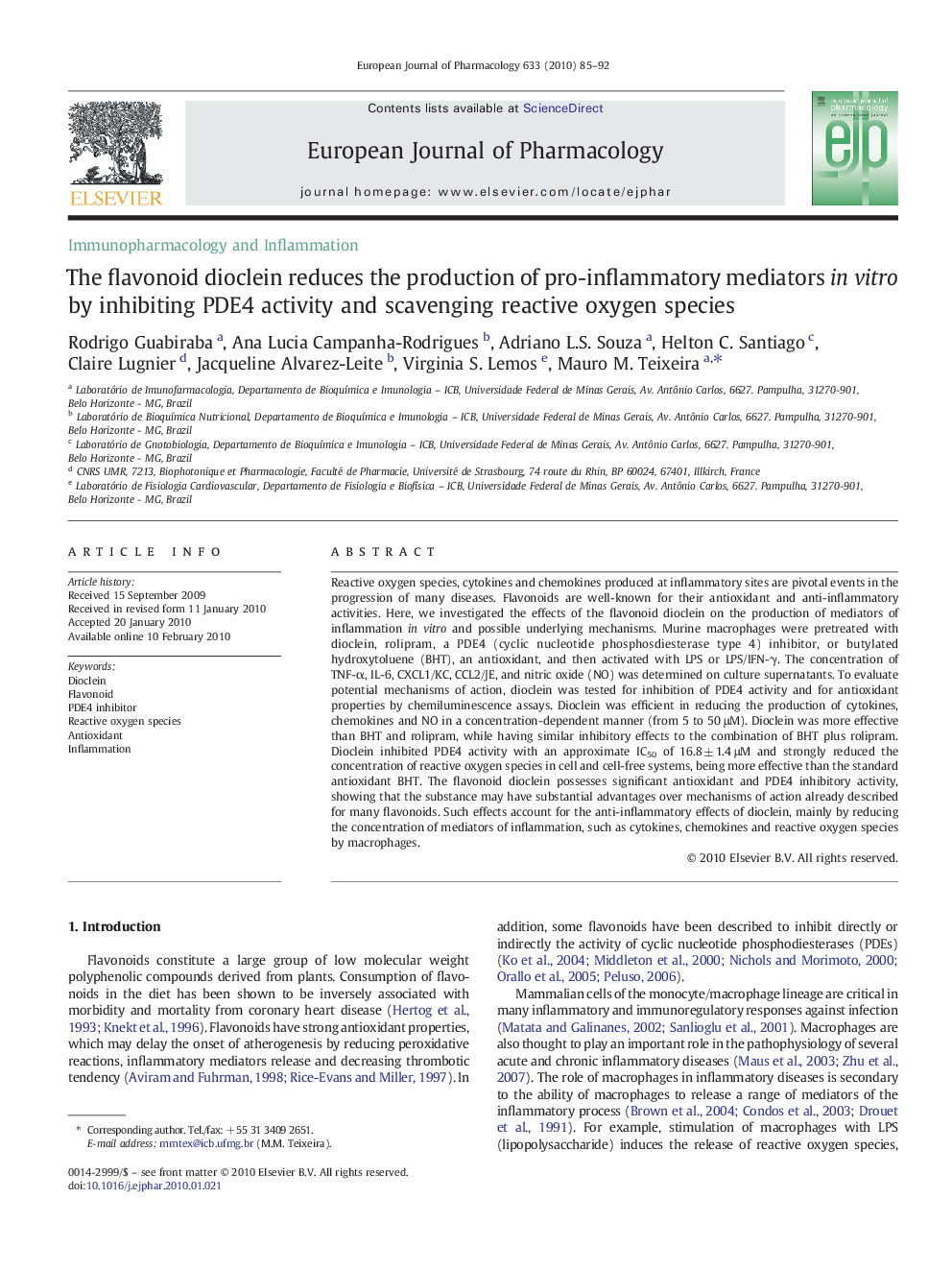| Article ID | Journal | Published Year | Pages | File Type |
|---|---|---|---|---|
| 2533634 | European Journal of Pharmacology | 2010 | 8 Pages |
Reactive oxygen species, cytokines and chemokines produced at inflammatory sites are pivotal events in the progression of many diseases. Flavonoids are well-known for their antioxidant and anti-inflammatory activities. Here, we investigated the effects of the flavonoid dioclein on the production of mediators of inflammation in vitro and possible underlying mechanisms. Murine macrophages were pretreated with dioclein, rolipram, a PDE4 (cyclic nucleotide phosphosdiesterase type 4) inhibitor, or butylated hydroxytoluene (BHT), an antioxidant, and then activated with LPS or LPS/IFN-γ. The concentration of TNF-α, IL-6, CXCL1/KC, CCL2/JE, and nitric oxide (NO) was determined on culture supernatants. To evaluate potential mechanisms of action, dioclein was tested for inhibition of PDE4 activity and for antioxidant properties by chemiluminescence assays. Dioclein was efficient in reducing the production of cytokines, chemokines and NO in a concentration-dependent manner (from 5 to 50 μM). Dioclein was more effective than BHT and rolipram, while having similar inhibitory effects to the combination of BHT plus rolipram. Dioclein inhibited PDE4 activity with an approximate IC50 of 16.8 ± 1.4 μM and strongly reduced the concentration of reactive oxygen species in cell and cell-free systems, being more effective than the standard antioxidant BHT. The flavonoid dioclein possesses significant antioxidant and PDE4 inhibitory activity, showing that the substance may have substantial advantages over mechanisms of action already described for many flavonoids. Such effects account for the anti-inflammatory effects of dioclein, mainly by reducing the concentration of mediators of inflammation, such as cytokines, chemokines and reactive oxygen species by macrophages.
